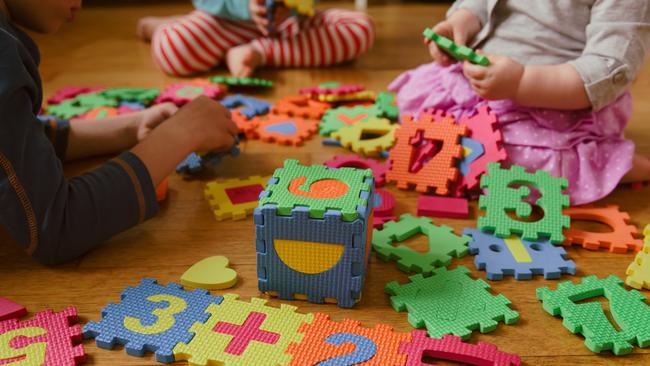Australia’s brief flirtation with deflation is over
Consumer prices lifted by 1.6pc as the end of free childcare and a bounce in petrol prices cut short Australia’s brush with deflation.

Consumer prices lifted by 1.6 per cent over the three months to September, as the end of free childcare and a bounce in petrol prices ended Australia’s brief flirtation with deflation.
Annual inflation came in at a still depressed 0.7 per cent, seasonally adjusted figures from the Australian Bureau of Statistics showed, after falling by 0.3 per cent over the year to June – which was only the third time consumer price growth has been negative going back to 1949.
Over the June quarter, a 95 per cent fall in childcare costs, falling rents and plunging petrol prices drove the steepest fall in the consumer price basket on record at 1.9 per cent.
The Morrison government brought an end to its temporary childcare support on July 13, and this comprised 0.9 percentage points of the 1.6 per cent lift in CPI in the September quarter, the ABS said, and led to the fastest quarterly lift in consumer prices since 2006.
Petrol prices climbed 9.4 per cent over the three months as global oil prices bounced, while preschool and primary education climbed 11 per cent. Despite the rebound, fuel prices were still 13 per cent lower than they were a year ago.
Massive spending on products to set up home offices and the like as more Australians worked away from the office drove an incredible 12 per cent jump in prices for furnishings, household equipment and services, the data showed.
While some major COVID-19 related price distortions eased over the three months to September, state-based rental assistance packages – including moratoriums on evictions – remained. The ABS figures showed household rents fell for the second straight quarter and were down in annual terms for the first time on record amid climbing vacancy rates.
Rents in Sydney have fallen for five consecutive quarters, and two consecutive quarters in Melbourne and Brisbane, while the market in Perth has been falling since late 2015, EY chief economist Joanne Masters said.
In Melbourne, which is only now exiting a harsh lockdown after successfully squashing a second wave of COVID-19 cases, the extension of free childcare meant the pace of consumer price growth was only half that in Sydney, at 0.9 per cent versus 1.8 per cent.
The trimmed mean CPI measure, which excludes more volatile items such as energy and fruit and vegetables – and which the RBA prefers as an underlying measure of inflationary pressures – lifted to 0.4 per cent in the September quarter, bringing the annual figure to 1.2 per cent.
Reserve Bank deputy governor Guy Debelle yesterday said he expects Australia’s first recession in three decades is already over. Governor Philip Lowe has nonetheless committed, as the nation treads an uncertain path out of the worst downturn since the 1930s, to keep rates low for the coming three years as a way to instil confidence in borrowers that interest costs will stay low for an extended period.
“Very low inflation may be welcomed by households who are facing a weak labour market and soft wage growth, but it is indicative of a weak underlying economy,” Ms Masters said.
“While the weakest point of the COVID-19 shock is likely to have been the June quarter, the recovery process is expected to be long and bumpy, and the unemployment rate to rise further,” she said. “In short, there are still significant challenges ahead.”
Bank economists are pencilling in a rate cut to 0.1 per cent from 0.25 per cent when the RBA board meets next Tuesday, as monetary policymakers seek to juice what Dr Lowe has described as an uneven and bumpy recovery.




To join the conversation, please log in. Don't have an account? Register
Join the conversation, you are commenting as Logout